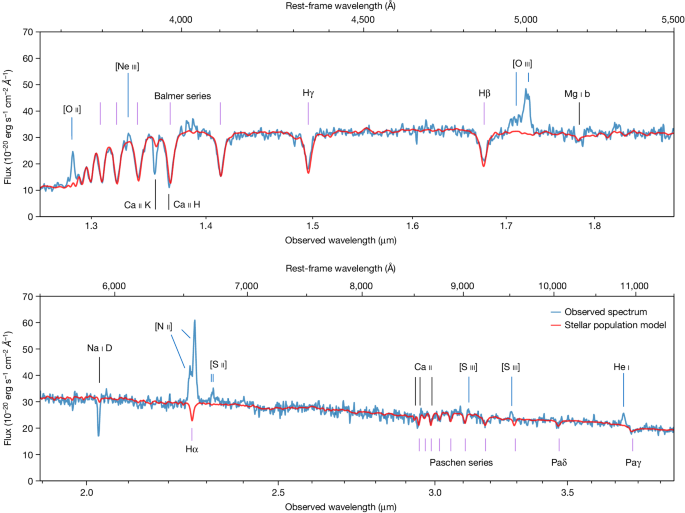Research by Adrian Raine suggests that omega-3 fatty acids, commonly found in fish and supplements, can significantly reduce aggressive behavior. His meta-analysis of 29 randomized controlled trials indicates a 30% reduction in aggression. Raine advocates for omega-3 supplementation in various societal settings to help mitigate violence, despite it not being a complete solution.Omega-3 fatty acids are linked to a 30% reduction in aggressive behavior across age and gender, according to a neurocriminologist’s meta-analysis of 29 studies.Individuals who frequently consume fish or fish oil supplements intake essential omega-3 fatty acids, crucial for brain health. Studies have consistently demonstrated that deficiencies in brain function can lead to aggressive and violent behavior, with poor nutrition being a significant risk factor for such behaviors.Adrian Raine, a neurocriminologist at Penn, has dedicated years to investigating whether omega-3 supplements can lessen aggressive tendencies. After conducting five randomized controlled trials across various countries and observing significant effects, Raine aimed to determine if these results could be replicated outside his laboratory.Expanded Research and FindingsNow, Raine has found further evidence for the efficacy of omega-3 supplementation by conducting a meta-analysis of 29 randomized controlled trials. It shows modest short-term effects—he estimates this intervention translates to a 30% reduction in aggression—across age, gender, diagnosis, treatment duration, and dosage. Raine is the lead author of a new paper published in the journal Aggressive and Violent Behavior, with Lia Brodrick of the Perelman School of Medicine.“I think the time has come to implement omega-3 supplementation to reduce aggression, irrespective of whether the setting is the community, the clinic, or the criminal justice system,” Raine says. “Omega-3 is not a magic bullet that is going to completely solve the problem of violence in society. But can it help? Based on these findings, we firmly believe it can, and we should start to act on the new knowledge we have.”Clinical ImplicationsHe notes that omega-3 also has benefits for treating heart disease and hypertension, and it is inexpensive and safe to use. “At the very least, parents seeking treatment for an aggressive child should know that in addition to any other treatment that their child receives, an extra portion or two of fish each week could also help,” Raine says.This meta-analysis shows that omega-3 reduced both reactive aggression, which is behavior in response to a provocation, and proactive aggression, which is planned.The study included 35 independent samples from 29 studies conducted in 19 independent laboratories from 1996 to 2024 with 3,918 participants. It found statistically significant effects whether averaging effect sizes by study, independent sample, or by laboratory.Only one of the 19 labs followed up with participations after supplementation ended, so the analysis focused on changes in aggression from beginning to end of treatment for experimental and control groups, a period averaging 16 weeks. “While there is value in knowing whether omega-3 reduces aggression in the short-term,” the paper states, “the next step will be to evaluate whether omega-3 can reduce aggression in the long-term.”Future ResearchThe paper notes several other possible avenues for future research, such as determining whether brain imaging shows that omega-3 supplementation enhances prefrontal functioning, whether genetic variation impacts the outcome of omega-3 treatment, and whether self-reported measures of aggression provide stronger evidence for efficacy than observer reports.“At the very least, we would argue that omega-3 supplementation should be considered as an adjunct to other interventions, whether they be psychological (e.g. CBT) or pharmacological (e.g. risperidone) in nature, and that caregivers are informed of the potential benefits of omega-3 supplementation,” the authors write. They conclude, “We believe the time has come both to execute omega-3 supplementation in practice and also to continue scientifically investigating its longer-term efficacy.”Reference: “Omega-3 supplementation reduces aggressive behavior: A meta-analytic review of randomized controlled trials” by Adrian Raine and Lia Brodrick, 16 May 2024, Aggression and Violent Behavior.DOI: 10.1016/j.avb.2024.101956Adrian Raine is the Richard Perry Professor of Criminology, Psychiatry, and Psychology and a Penn Integrates Knowledge professor with joint appointments in the School of Arts & Sciences and Perelman School of Medicine.Lia Brodrick was a teaching assistant for Raine as an undergraduate at Penn and is now a clinical research coordinator at the Perelman School of Medicine.This research was supported by the Eunice Kennedy Shriver National Institute of Child Health and Human Development (R01HD087485).
Omega-3 Supplementation Linked to 30% Reduction in Aggression Across Age and Gender




